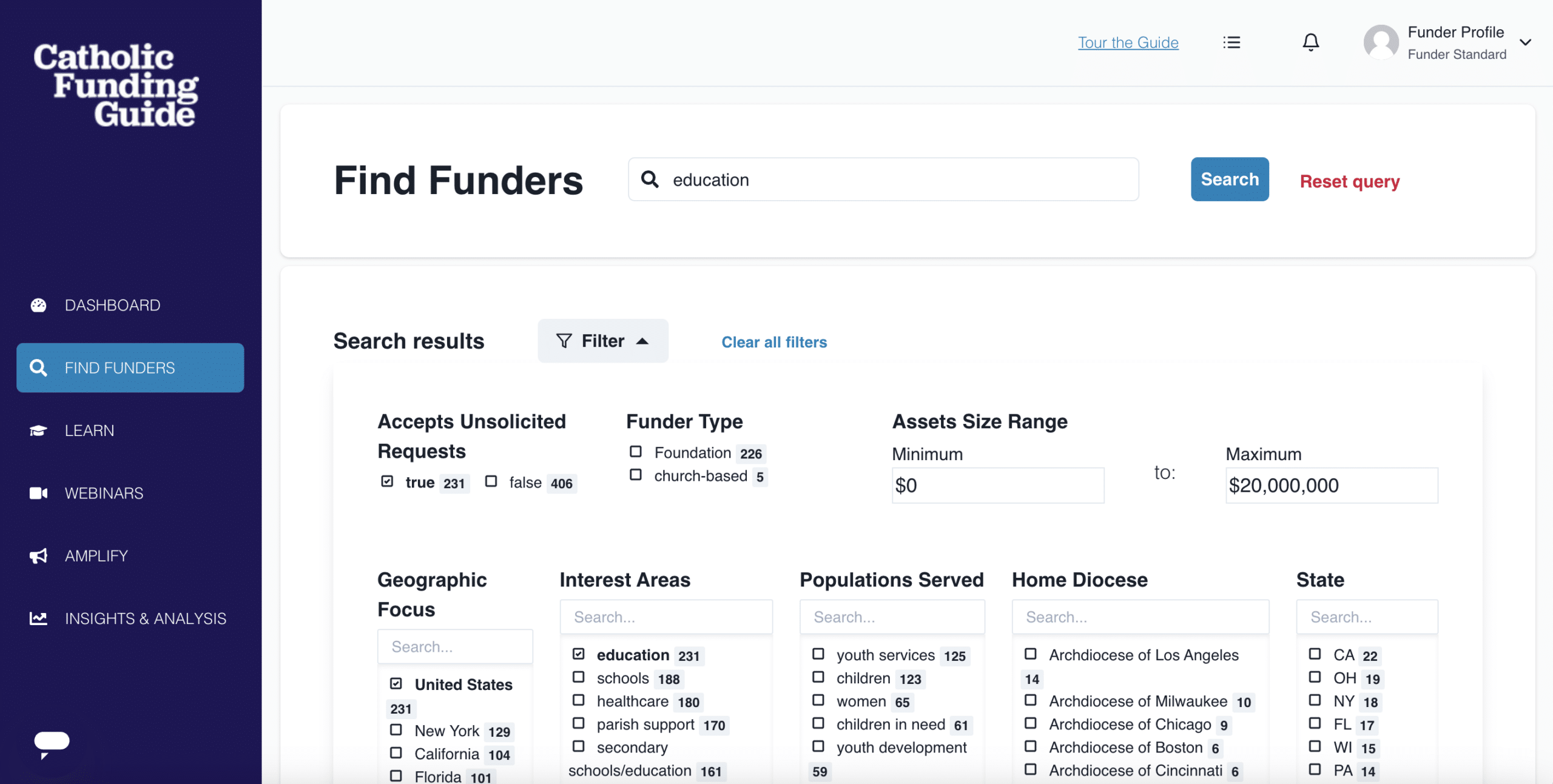Seeking Operating Support
Operating support is the backbone of nonprofit functioning. Yet it is arguably the most difficult type of funding to secure. Program-specific grants are prevalent in the philanthropy sector, making it tough to find unrestricted grants or grants for operating support or capital campaigns.
Although the trend is slowly changing in some circles, securing operating support is still an uphill battle for most nonprofits, whether they need a technology update or are just trying to keep the lights on.
Understanding why funders tend to prefer program-specific grants—and exploring other options to win the funding you need—are key in your search for operating support.
Why It’s Hard to Find Operating Support
There are two common barriers that deter funders from providing grants for operating support.
Tangible impact. Understandably, grantmakers want to know exactly how their dollars are making an organization’s work possible. They tend to express interest in specific measurable outcomes, which are significantly easier to provide for program grants than for operating support.
This hurdle can be overcome, in part, by making a strong and clear case explaining how operating support impacts your work, goals, and future plans.
Financial sustainability. Grantmakers are often hesitant to provide operating support because they want the organization to be self-sufficient (or at least have a clear plan to become self-sustaining). They may assume that if they give one operating support grant, they will continue to be asked for operating support.
If there is a mitigating factor that explains why your nonprofit needs operating support, or if you have a plan to become more financially sustainable, definitely present those to prospective funders. This will help them perceive your organization as financially responsible.
Overhead Myth. The “overhead myth” is a widespread misconception in philanthropy that an efficiently operated nonprofit will have a low overhead (and that a nonprofit with a high overhead must be managing their money poorly).
Since funders tend to fund nonprofits with a low overhead, many nonprofits conflate their numbers to hide a high overhead. This cyclical effect perpetuates the misconception, so that when a nonprofit is honest about a high overhead, funders perceive that as a red flag.
On the other hand, when a nonprofit presents a false low overhead, this can make operating support seem unnecessary to a funder, or it may limit the nonprofit’s ability to ask for the amount they truly need.
This is a complex situation that can only be fixed gradually if funders and nonprofits work to build relationships centered on trust.
You can start to break the harmful cycle of the overhead myth by being transparent. This can be nerve-wracking when it comes to your finances, especially if your nonprofit is struggling. While you may turn away some funders, you’ll attract others who are seeking clarity and trust in their funding decisions.
To Win Operating Support, Start with Your Finances
You cannot effectively ask for money unless you know how much you have and how much you need. This principle is simple enough, but many nonprofit professionals are so busy and so overworked that they may overlook the budgeting aspect of grant seeking.
When getting your finances in order, there are two primary steps to follow.
First, understand and organize your expenses.
Before establishing a budget, you need a solid understanding of your expenses. Additionally, it’s vital to clearly and accurately distinguish between program and operating expenses.
This is not always as black-and-white as sorting recurring bills such as “electric” and “inventory for the food pantry.” Sometimes you need to think outside the box. For example, a manager may spend 30% of their time running a program, so in reality, 30% of their salary is an expense of the program. Or perhaps 20% of your office supplies are used for a program—that is a program expense as well.
When you properly designate expenses, this can strengthen your case for funders because it will be easier to demonstrate how their money directly (vs. indirectly) impacts the groups or cause you serve.
Next, create a financial plan.
Funders want to see a solid financial plan, which is one reason to create a thorough budget. Even more beneficial, however, is the fact that a budget will provide clarity on the financial state of your organization.
Good financial planning can help you identify opportunities to afford a capital project or operating expenses that previously seemed unattainable, and can help you identify funding opportunities with more precision. A solid budget will also help you develop a strong fundraising plan for the year.
Additionally, having a strong financial plan—with multiple revenue sources—can put you on the path to financial sustainability, which, as we previously mentioned, is appealing to funders (and even more important for your organization’s work long-term). It may not always be possible for an organization to be sustainable without fundraised dollars, but putting forth the effort to diversify funding streams is one way to move in that direction. Diversifying revenue into categories such as individual gifts, grants, corporate giving, fundraising events, etc. can help mitigate the negative impact of one gift not coming through.
An important aspect of financial planning is keeping good records. If you haven’t done that in the past, now is a good time to start. Funders want to feel comfortable funding operating costs. Keeping thorough records of your organization’s financial management can go a long way towards proving that you are a worthy recipient of their gift.
How to Find Operating Support
Once you’ve identified the operating costs you need, start with your base of existing individual donors. Brainstorm ways to appeal to them first, and then expand on that by focusing efforts locally.
Ideas include:
- Host a fundraiser
- Work with a parish to hold second collections
- Put donation jars around the community, such as in local shops or restaurants
- Use social media and email to amplify existing campaigns
- Find a local sponsor
Even if you are a small nonprofit with a small staff—or perhaps you are the staff—it’s still necessary to streamline your efforts and carve out time for fundraising.
When looking for operating support, a specific goal is essential—but remember to focus primarily on impact, such as by telling a story of how your organization changes lives. During a webinar we hosted in March 2023, Tara Doyon, Director of Operations and Senior Consultant at Petrus Development, shared some tips on how to find operating support:
The full webinar is available on demand for subscribers.
Know How to Measure Impact for Operating Support
It’s important to have methods in place to measure and report on the impact of operating support. This builds trust and boosts your credibility with funders as well as donors who have given to your capital campaigns. It also helps close the gap between operating costs and mission, proving that they are much more closely related than many assume.
Accurate reporting requires:
- A knowledge of current capacity and projections as you build capacity.
- A standard way to measure progress and milestones.
- The ability to identify and articulate what your organization is doing well and where there is room for improvement.
- The ability to articulate goals and how funding would help you pursue those goals.
Your financial plan will be useful in this assessment.
Tips for Success when Seeking Operating Support
Here are some additional tips to keep in mind when you’re ready to start fundraising for operating support.
Start early. Before mentioning a need for operating support, you can plant seeds and ask questions when you first meet a funder, such as, “Would you ever be interested in supporting operating expenses or funding a capital campaign?”
Talk to current funders. If you have a good relationship with your current funders, ask them about their willingness to support your organization in this capacity. Because you have established trust with them, they may be more likely to fund operating support. At the very least, they may be able to recommend another funder.
Consider looking for capacity building grants. According to the Think and Ink Grant Consulting blog:
“Some capacity-building grants invest in your organization by providing training for Executive Directors, Board of Directors, and other staff. Others provide access to professional services to help advance your nonprofit organization. If any of these expenses are included in your operating budget, capacity-building grants can help offset these costs.”
https://www.thinkandinkgrants.com/post/five-strategies-to-help-your-nonprofit-win-general-operating-grants
You can also think creatively to find other ways to build capacity as an organization that might be appealing to funders while also equipping your organization to carry out its day-to-day work. For example, can you request funding to grow your volunteer program in a way that cost-efficiently expands your organization’s capacity?
Examine multi-year grants. Do you have multi-year grants? When applying for these or talking to funders who are interested in providing them, pay attention to whether the amount increases each year. Sometimes the increases can be used to offset operating expenses.
Reverse the overhead myth. Facilitate honest conversations about your expenses and financial situation, and be diligent with reporting. In doing so, you can help eradicate the hesitations funders often have about providing operating support.
Looking for more fundraising ideas and inspiration? Sign in or subscribe for access to webinars and other useful fundraising resources.



